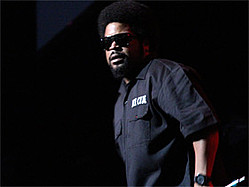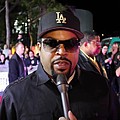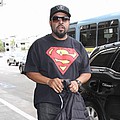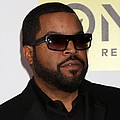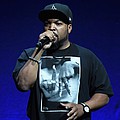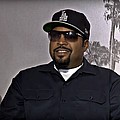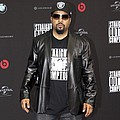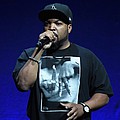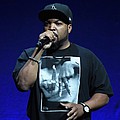On April 29, 1992, Los Angeles erupted after a jury acquitted four LAPD officers accused of beating Rodney King. It was dubbed the L.A. riots, as thousands of people took to the streets in protest. There was looting, arson and widespread violence. The indelible imagery has lived on through archived footage, art and, of course, music.
Albums like Dr. Dre's The Chronic and Ice Cube's The Predator were strongly influenced by the racial tension and social powder-keg conditions that preceded the riots and the aggressions and flared tempers in the aftermath. In many ways, West Coast hip-hop music in the early 1990s helped those outside of L.A. gain perspective on the ongoing power struggle between the black youth and the LAPD officers who police the inner-city neighborhoods.
"People have music in their heart. Music ain't about the charts; it's about how you feel about a certain song," Ice Cube told MTV news on Saturday night after KDAY's annual Krush Groove concert. "I know people who have music, and music changed their life just by hearing a song. It could be an old song, it could be a song that people thought were thrown away and you could hear it and it could inspire you."
Cube dropped The Predator in November 1992, several months after the L.A. riots. On "We Had to Tear This Mother----a Up," Cube expertly painted a lyrical picture of the six-day upheaval. "Not guilty, the filthy devils tried to kill me/ When the news get to the 'hood then n---as will be/ Hotter than cayenne pepper, cuss, bust/ Kickin' up dust is a must," he rapped to open the now-classic track.
The former N.W.A star didn't start there. On "Who Got the Camera?," Cube directly addressed the Rodney King beating, which was famously videotaped. In the song's lyrics, Cube tells a story about being pulled over and assaulted by police. "Started they investigation/ No driver's license, no registration/ When I stepped out the car they slammed me/ Goddamn, y'all, who got the camera," he rapped.
For those who didn't witness the L.A. riots first-hand, Cube's music helped illustrate some of the issues and frustrations that led to the chaos. Cube believes music is a tool that can bring about change, just as it was 20 years ago when he dropped The Predator. "I think music always has the power to change, heal, bring understanding and bring people together," he said.
